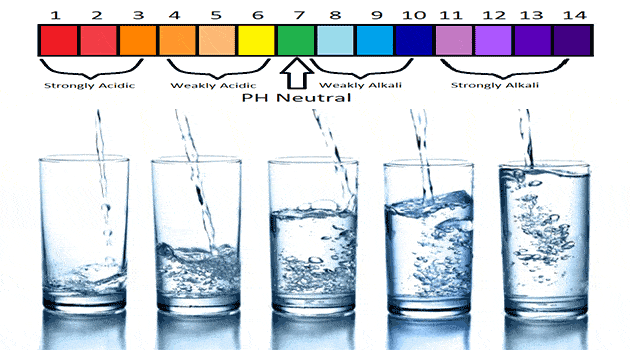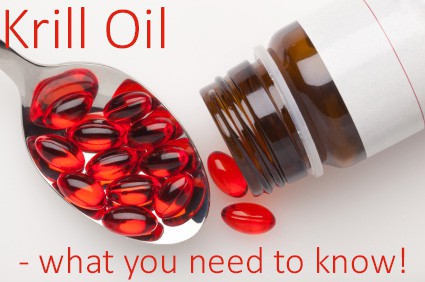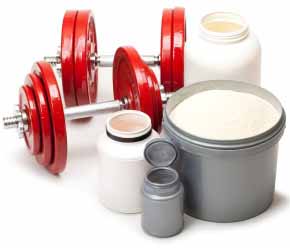One can’t throw the proverbial rock and not hit yet another obnoxious ad of some sort for alkaline water, with claims to cure all that ails ya, from genital warts to fear of flying. OK, a tad of an exaggeration on my end, but the list of what alkaline water promises to cure is extensive, usually bordering on the ridiculous, and sets of my BS alarms to the max, as It should for any science minded person. Claims such as it restores pH balance by reducing “acidity levels in the blood” and “reduces water cluster size which allows water to penetrate cells more easily” and the always favorite detox angles such as “eliminates mucus build-up on colon walls, thus improving the body’s ability to absorb important nutrients” as well as helps “…flushing out acidic waste and toxins that have accumulated in the body over time” to name just a plethora of pseudo-science claims out there for alkaline water. Of course it’s also claimed on some web pages to help with weight loss, slow the aging process, improve energy, relieve depression, improve well-being, as well as increase manly muscle missile girth, to name a few more claims I have seen. Ok, that last one was wishful thinking on my end, but I also wouldn’t be shocked to see someone claiming it about alkaline water.
What is alkaline water? It’s actually not clear in that the sellers of such products tend to confuse PH with alkalinity and they are not interchangeable terms. In terms of how they position the products, it’s water that has had its PH increased above that of typical water. Tap water can range several PH points in either direction of neutral PH due to a number of factors such as geographical location, etc. and will run 6.5 to 8.5 with the majority hovering around neutral PH, which is 7. One can buy PH strips on line if they’re interested to see the PH of their drinking water is. The PH of alkaline water tends to run in the 8-9 range and our blood in very narrow range between 7.35 and 7.45. But how does that impact alkalinity? I will touch on that later.
Beyond the goofy pseudo-science claims, is it just a scam like so many others, e.g., energy bracelets, Shake weight and such? Surprisingly, the answer is…no. Before you think the Brink man has lost his mind, let me explain.
One of the major mistakes most sellers and proponents of alkaline water make is they clearly don’t understand the basic physiology of blood PH homeostasis. They’ll claim it increases the PH of the blood (make the blood “less acidic” is the usual claim), and as anyone who has taken human biology 101 knows, blood PH is very tightly regulated as mentioned above, and even a small change in blood PH up or down is bad mojo and likely to land one in the ER or worse. At that point the skeptic will (understandably) ignore any further claims of benefit and assume it’s yet another scam and fad. That however may be throwing the baby out with the bathwater.
Hopefully this does not end up in some alkaline water marketing page some where, but the body maintains blood and tissue PH by using buffering agents it obtains from the diet, as well as what’s stored in various tissues, such as bone, muscles. The body uses a variety of buffering agents to balance the normal acid production/load from various sources, and that’s the basic nature of PH homeostasis without the need to get all egg head on you readers. Basic chem; add a buffering agent to an acid and you’ll increase the PH making it less acidic. Lower PH = more acidic, higher PH, less acidic. For you science nerds, PH is the negative log of the hydrogen ion content. However, the body does not have an unlimited supply of buffering agents and if not steadily replenished, the body will rely on its stores to maintain the all important PH levels.
Speaking of buffering agents, this is where things can get complicated. As alluded to above, PH and alkalinity are not interchangeable terms. The PH is the PH (define elsewhere in the article) but the alkalinity indicates the buffering capacity. While a product could have a high PH, it may have a poor buffering capacity and alkalinity is the absolute measure of the concentration of the alkaline substances in a solution, which indicates its ability to neutralize acids. Water with a high PH but lacking in buffering capacity is unable to “buffer” acids when added to the water. I realize that’s a tad confusing but it’s an important difference as you could have an “alkaline water” with a higher PH that is capable of actually neutralize acids (the reason you’re ingesting it…) or a product that has a higher PH yet will have minimal impact on neutralize acids due low alkalinity. That will depend on how the water is produced, that is, whether it has adequate buffering capacity. The most common alkalizing agents are bicarbonates, but there are others. From a strictly water POV, while mineral waters for example may not have a high PH, they often do contain dissolved bicarbonates and are likley a better choice than many “alkaline water” products sold. It’s also why attempting to counter acidic diets with whole foods is likely to yield the best results, which leads to the the next section.
Modern Western Diets
Modern western diets tend to lack adequate buffering agents and favor acid forming foods, tend to increase the acidic load on the body which means a higher demand on buffering agents to counter it, which brings us to the topic of low level, diet-induced, metabolic acidosis. Typical Western diets are high in animal proteins and cereal grains, and low in fruits and vegetables. It’s been suggested that such diets cause a low grade metabolic acidosis, which contributes to the decline in muscle and bone mass found in aging adults. One study found that by adding a buffering agent (potassium bicarbonate) to the diet of post-menopausal women the muscle wasting effects of a “normal” diet were prevented. The researchers concluded the use of the buffering agent was “… potentially sufficient to both prevent continuing age-related loss of muscle mass and restore previously accrued deficits.”
Athletes also tend to eat more protein than normal non-exercising folks, that comes with a potential negative per above over time. The take home lesson here is; athletes require adequate intakes of high quality proteins to maintain and or increase their muscle mass, or recoup from tough workouts, it should come from a variety of sources and be accompanied by an increase in fruits and vegetables as well as a reduction of cereal grain-based foods.
If the acidic load is chronic, whole body buffering agents are depleted, a factor in sarcopenia (age related loss of muscle), osteoporosis, and other conditions best avoided. And make no mistake, even those who have remained active their entire lives can and do suffer from sarcopenia and or osteoporosis (much to their surprise), so regular exercise alone will not fully prevent it, though will likely reduce severity. People that want to read up/learn more about how to avoid Sarcopenia should read my article on that topic HERE.
Some will make the claim cancer thrives in an acidic environment and keeping the body in a more “alkaline state” decreases rates and or severity of cancer. While there may be a kernel of truth to that, it’s far more complicated, different cancers have different metabolic pathways, and cause and effect far from well established on that score. Be that as it may, it’s true that a reliance on ingestion of more acid forming foods and a lack of foods that supply essential buffering agents, is associated with various negative outcomes best avoided. One of many reasons grandma was right when she instructed us to eat more vegis. The use of supplemental buffering agents such as potassium bicarbonate or sodium bicarbonate, although effective, does not replace fruits and vegetables for obvious reasons, but may be incorporated into a supplement regimen.
But is the only about health and wellness and anti-aging related issues? Nope. The acid/alkaline issue also directly impacts performance for both strength and endurance athletes. Studies going back decades found improvements in endurance and number of repetitions athletes could perform during resistance training with the use of basic sodium bicarbonate (baking soda) and even back in the day, TwinLab had a product called Phos-Fuel.* There’s an impressive and extensive number of studies that finds use of a buffering agent like sodium bicarbonate (baking soda) improves short high intensity exercise that relies primarily on the ATP/PCR system, such as the number of repetitions athletes could perform during resistance training. A recent study with CrossFit athletes found those getting sodium bicarbonate ( 150 mg/kgfollowing a progressive-dose regimen for 10 days to avoid known GI issues) vs placebo were able to complete more repetitions and “…improved CrossFit-like performance, as well as delayed ventilatory threshold occurrence.”
As this is supposed to be an article, kinda sorta, about alkaline water, I will just add a few essential aspects of using sodium bicarbonate:
• Not all studies find benefits, but the majority do, and the magnitude of the effect varies widely between individuals, likely due to their pre-existing buffering capacity.
• Only major drawback has been GI issues, so following a progressive dose schedule over 10 days to 2 weeks is recommended.
Baking Soda, Not The Only Buffer In Town!
It should be interesting to note that beta alanine (BA), a supplement that is fairly popular currently with an impressive amount of data supporting its use, acts primarily as a buffering agent. Carnosine, produced via BA plus l-histidine, is an essential buffering agent and low tissue carnosine levels associated with a number of diseases and aging, again suggesting that systemic buffering capacity an essential aspect of health and wellness.
While the sports/performance oriented types tend to use BA, the anti-aging/longevity focused community tend to use carnosine. BA tends to be much less expensive than carnosine, and ingested carnosine is broken down into its component BA + l-histidine and reformed into Carnosine, but I digress. Why the anti-aging/longevity community tend to avoid BA is another article for another day, but suffice it to say, they’re probably wrong regarding the reasons they do so.
Ok, back to alkaline water!
Has there been any studies with alkaline water? Yup. While there’s not many, several studies find improvements in interesting health related endpoints with alkaline water, such as increased life span in mice, with “Histological examination of mice kidneys, intestine, heart, liver, and brain revealed that no significant differences emerged among the three groups indicating that no specific pathology resulted correlated with the consumption of alkaline water.” That is, they lived longer but ingestion didn’t appear to negatively impact major organs and such. Another recent study found the ingestion of alkaline water that included 100 people found statically significant difference in whole blood viscosity after consuming alkaline water compared to regular water post workout in an exercise induced dehydration state. Simply put, viscosity is considered a measurement of how efficiently blood flows through the vessels and the study suggests that may lead to more rapid hydration post workout, but more data is needed on that score. Finally, one small study with alkaline water found it may have benefit those with diabetes, elevated blood pressure, and high cholesterol after 3 to 6 months of use. This is a preliminary study to be sure, and I wouldn’t bet my money that will be a well established benefit of drinking alkaline water in the future, but interesting finding none the less.
Side Effects
This one comes under the “used some damn common sense” and moderation and “too much of a good thing is actually a bad thing.” While most people have heard of metabolic acidosis, one can experience metabolic alkalosis, so ingesting highly purified high PH sources such as alkaline water, baking soda, etc, vs getting them via balanced nutrition, can potentially be problematic. In western societies, chronic sub clinical metabolic acidosis is by far the more common issue, but one could find themselves in metabolic alkalosis, which classically includes symptoms such as nausea, muscle twitching, confusion, and tingling in the extremities or face. Again, those who eat a balanced diet and use some bicarb a few days a week or drink a few bottles of alkaline water are likely good to go, but there’s always gonna be that idiot who drinks 3 gallons a day of alkaline water with a sodium bicarbonate enema who will get themselves into trouble due to lack of applying the not so common common sense rule.
So Alkaline Water Does Not Completely Suck. Now What?
Should people use alkaline water then? The reality is, alkaline water may indeed have potential benefits, but a focus on eating more foods that supply the needed buffering agents and other beneficial nutrients and the use of super cheap bicarbonates will be a healthier and or less expensive method of achieving it. Also, depending on the alkalinity of the water – which few companies even mention in their sales literature – vs simple PH, will determine its real value as a buffer to acidity. But, if people wanna down a bottle of overpriced alkaline water once in a while I will not make fun of you. OK, maybe a little…And that’s why alkaline water does not completely suck even though most of the claims of benefit do!
*I will say that when the Bleckman’s owned and ran TwinLab, it was a company that often produced supplements ahead of their time. PhosFuel was such a product to be sure.
Sources:
Frassetto L, et al. Potassium bicarbonate reduces urinary nitrogen excretion in postmenopausal women. J Clin Endocrinol Metab. 1997 Jan;82(1):254-9.
Frassetto L, et al., Diet, evolution and aging–the pathophysiologic effects of the post-agricultural inversion of the potassium-to-sodium and base-to-chloride ratios in the human diet. Eur J Nutr. 2001 Oct;40(5):200-13.
The effect of chronic progressive-dose sodium bicarbonate ingestion on CrossFit-like performance: A double-blind, randomized cross-over trial. PLoS One. 2018; 13(5).
Magro M1, et al. Alkaline Water and Longevity: A Murine Study. Evid Based Complement Alternat Med. 2016;2016:3084126.
Weidman J, et al. Effect of electrolyzed high-pH alkaline water on blood viscosity in healthy adults. J Int Soc Sports Nutr. 2016 Nov 28;13:45.
WANG Yu-lian.
Preliminary observation on changes of blood pressure, blood sugar and blood
lipids after using alkaline ionized drinking water. Shanghai Journal of
Preventive Medicine. 2001-12
Del Coso J, et al. Restoration of blood pH between repeated bouts of high-intensity exercise: effects of various active-recovery protocols. Eur J Appl Physiol. 2010. February;108(3):523–32
Siegler JC, Marshall PW, Bishop D, Shaw G, Green S. Mechanistic insights into the efficacy of sodium bicarbonate supplementation to improve athletic performance. Sports Med Open. 2016. December;2(1):41
Abramowitz MK, Hostetter TH, Melamed ML. Lower serum bicarbonate and a higher anion gap are associated with lower cardiorespiratory fitness in young adults. Kidney Int. 2012. May; 81(10):1033–42.
Lancha Junior AH, Painelli Vde S, Saunders B, Artioli GG. Nutritional strategies to modulate intracellular and extracellular buffering capacity during high-intensity exercise. Sports Med. 2015. November;45 (Suppl 1):S71–81.
Regulation of pH in human skeletal muscle: adaptations to physical activity. Acta Physiol (Oxf). 2008. May;193(1):17–24
Carr BM, Webster MJ, Boyd JC, Hudson GM, Scheett TP. Sodium bicarbonate supplementation improves hypertrophy-type resistance exercise performance. Eur J Appl Physiol. 2013. March;113(3):743–52.
Driller MW, Gregory JR, Williams AD, Fell JW. The effects of chronic sodium bicarbonate ingestion and interval training in highly trained rowers. Int J Sport Nutr Exerc Metab. 2013. February;23(1):40–7.
Percival ME, Martin BJ, Gillen JB, Skelly LE, MacInnis MJ, Green AE, et al. Sodium bicarbonate ingestion augments the increase in PGC-1α mRNA expression during recovery from intense interval exercise in human skeletal muscle. J Appl Physiol (1985). 2015. December 1;119(11):1303–12.
Hollidge-Horvat MG, Parolin ML, Wong D, Jones NL, Heigenhauser GJ. Effect of induced metabolic alkalosis on human skeletal muscle metabolism during exercise. Am J Physiol Endocrinol Metab. 2000. February;278(2):E316–29
Tobias G, Benatti FB, de Salles Painelli V, Roschel H, Gualano B, Sale C, et al. Additive effects of beta-alanine and sodium bicarbonate on upper-body intermittent performance. Amino Acids. 2013. August;45(2):309–17.
Price M, Moss P, Rance S. Effects of sodium bicarbonate ingestion on prolonged intermittent exercise. Med Sci Sports Exerc. 2003. August;35(8):1303–8.
Krustrup P, Ermidis G, Mohr M. Sodium bicarbonate intake improves high-intensity intermittent exercise performance in trained young men. J Int Soc Sports Nutr. 2015. June 4;12:25
Duncan MJ, Weldon A, Price MJ. The effect of sodium bicarbonate ingestion on back squat and bench press exercise to failure. J Strength Cond Res. 2014. May;28(5):1358–66.
Peart DJ, Siegler JC, Vince RV. Practical recommendations for coaches and athletes: a meta-analysis of sodium bicarbonate use for athletic performance. J Strength Cond Res. 2012. July;26(7):1975–83
Saunders B, Sale C, Harris RC, Sunderland C. Sodium bicarbonate and high-intensity-cycling capacity: variability in responses. Int J Sports Physiol Perform. 2014. July;9(4):627–32.
Mueller SM, Gehrig SM, Frese S, Wagner CA, Boutellier U, Toigo M. Multiday acute sodium bicarbonate intake improves endurance capacity and reduces acidosis in men. J Int Soc Sports Nutr. 2013. March 26;10(1):16
Sale C, Saunders B, Hudson S, Wise JA, Harris RC, Sunderland CD. Effect of β-alanine plus sodium bicarbonate on high-intensity cycling capacity. Med Sci Sports Exerc. 2011. October;43(10):1972–8
Miller P, Robinson AL, Sparks SA, Bridge CA, Bentley DJ, McNaughton LR. The effects of novel ingestion of sodium bicarbonate on repeated sprint ability. J Strength Cond Res. 2016. February;30(2):561–8
Will Brink is the owner of the Brinkzone Blog. Will has over 30 years experience as a respected author, columnist and consultant, to the supplement, fitness, bodybuilding, and weight loss industry and has been extensively published. Will graduated from Harvard University with a concentration in the natural sciences, and is a consultant to major supplement, dairy, and pharmaceutical companies.
His often ground breaking articles can be found in publications such as Lets Live, Muscle Media 2000, MuscleMag International, The Life Extension Magazine, Muscle n Fitness, Inside Karate, Exercise For Men Only, Body International, Power, Oxygen, Penthouse, Women’s World and The Townsend Letter For Doctors.
He’s also been published in peer reviewed journals.
Will is the author of the popular e-books, both accompanied by private members forum access , Bodybuilding Revealed & Fat Loss Revealed.
You can also buy Will’s other books on Amazon, Apple iBook, and Barnes and Noble.






Thank you Will!
Very concise article. I often hear people talking about acidification of the blood when they are really referring to acidosis.
Excellent article. I knew a group of folks in AZ who were heavily into a MLM that promoted an alkaline water machine. I went to one of their seminars. I spotted their lack of scientific knowledge right away and told them after the presentation that when they say unscientific (and incorrect) things, it kills their credibility with those of us who actually know the science. (There was an acupuncturist *me* and a chiropractor in the room during this presentation.) I was told that “only Bill Nye the Science Guy and other similar nerds would even know these things,” to which I responded that it still doesn’t make it right to be wrong on the science, or worse yet, to outright lie and deceive people. Some of the things they said were covered in your article, such as the “smaller clusters of water molecules get into your cells easier,” “your blood is too acidic – this water will make it more alkaline,” and “you cannot get too alkaline but many people are too acidic”. I don’t know who is worse, the alkaline water MLM crowd, the “essential oils” MLM crowd, or the very secretive “health coach” MLM crowd, whose adherents become “health coaches” not because of any degree in a science or health related field, but are conferred that “title” simply for joining a MLM organization that sells weight loss products.
Yes, MLM has ran with it obscuring the fact under all the nonsense there’s some potential benefits, but of course one does not need over priced MLM water to achieve it either.
Thank you, I will continue to add baking soda to my coffee to counteract the acidity, this article was great timing, as I wasn’t really sure how effective/safe this was, thanks again
I can’t imagine anything that would taste worse than putting baking soda into my coffee, but OK…
It might well have to do with the amount you add. Back when I had a real job in the healthcare industry, mostly diagnostic systems and research instrumentation, we had a system that would remove acid compounds from solutions by electrophoresis. On a lark one day we ran some day old coffee through the system and tasted the result. It was great coffee! Caffeic Acid is the killer in coffee, and sodium bicarbonate likely neutralizes it. You’d have to titrate your coffee to find the correct amount, but it makes sense. To me anyway.
Thanks for this. But I have a small request. When you post an article like this, the font you use can hinder its readability. If possible, can you use a serifed font instead. This makes the words more easily discernible and doesn’t tire the eyes as much. Thanks from an old fart.